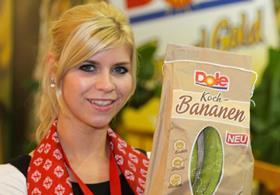
The world's largest fresh produce marketer Dole Food Company does not plan to sell its entire German division, only the part of Dole Germany involved directly in the physical distribution of its products, Eurofruit has learned.
Announcing its fourth-quarter and full-year results on 15 March, the company revealed it was in negotiations to sell off its 'distribution company' in Germany.
With very little additional detail given about the sale, which is being carried out in order to cut debt and costs, some in the trade had immediately speculated that part or indeed all of Dole Germany OHG itself, which remains at the core of Dole Fresh Fruit Europe's overall operation, might be up for sale.
In a statement to the New York Stock Exchange, where Dole is listed, the group's president and chief executive officer David DeLorenzo said: 'We are also pleased to report that we have entered into an agreement to sell our distribution company in Germany. This pending sale is in line with our continuing plan to divest non-core assets, and will further our goal to reduce debt and improve operating margins.'
A spokesperson for Dole Fresh Fruit Europe told Eurofruit the company would be making no further comment while the sale was still pending.
It is understood that the sale will involve the divestment of logistical operations rather than areas relating to imports and marketing.
However, it remains unclear whether or not ripening and storage facilties belonging to Dole Germany – operations which arguably come under the heading 'distribution' – will also be sold.
Dole's Europe and Germany operations are based at the same office in Hamburg, where the company's headquarters has been since its relocation from Paris and a major restructuring of senior management back in October 2010.
The relocation was apparently prompted by the sale of Dole's UK and France divisions to French importer-distributor Compagnie Fruitière.
More recently, Dole's European business has begun operating as two independently managed divisions, one for tropicals such as bananas and pineapples and one for other items, including citrus, berries, deciduous fruit and exotics.



